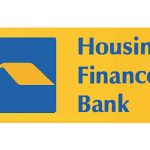Uganda’s real estate market is undergoing a significant transformation, driven largely by innovative mortgage solutions provided by the Housing Finance Bank, making housing more accessible and affordable.
Mortgages, which are agreements between borrowers and lenders where the lender holds a lien on the borrower’s property as collateral, are essential in residential and commercial real estate markets.
Despite their importance, Uganda’s mortgage market remains small, accounting for only 1.2% of the country’s GDP, which has remained unchanged in recent years. However, this is a notable increase from just 0.3% in 2002, highlighting gradual growth.
John Bosco Kaweesi, Head of Mortgages and Consumer Banking at Housing Finance Bank, says there are many interesting trends in the mortgage market today.
“We’ve seen new entrants and players offering diverse concepts targeted at different market segments giving customers more options,” he says.
He further observes: “A significant investment is being made in condominium apartments. More Ugandans are adopting the idea of living in condominiums, whereas traditionally, most people prefer standalone homes. As Uganda’s economy grows, we see many new entrants providing units in condominium arrangements. The numbers are growing, and several companies are partnering with us to offer these options to our customers, giving them a wide scope to choose their preferred homes.”
Projections from Statista Market Insights suggest that Uganda’s real estate market could grow by 7.07% from 2024 to 2029, potentially reaching a market volume of USD 514.40 billion by 2029.
Furthermore, Housing Finance Bank has partnered with international lenders and local sources to secure more affordable financing options. One notable initiative is the ‘Zimba Mpola Mpola’ program, which provides loans as small as UGX 200,000 (approximately $54) for various purposes, including water harvesting and processing lease titles. This program specifically targets low and middle-income earners, offering them lower interest rates and flexible terms, according to Kaweesi.
Kaweesi also highlights that the mortgage products offered by Housing Finance Bank are designed with long-term tenures, some extending up to 25 years—the longest in Uganda.
“These extended repayment periods make mortgages more affordable and increase the likelihood of customers qualifying for the necessary funds for their housing needs. The bank’s products feature competitive pricing, property security, and specific financing purposes, making them attractive for those looking to invest in homeownership,” says Kaweesi.
With a 57-year history in the mortgage sector, Housing Finance Bank has established itself as a leading mortgage lender financing over 10,000 homes in the last 5 years thus being a trusted partner.
Currently, Housing Finance Bank dominates Uganda’s mortgage market, holding 55% of the total mortgage portfolio. Other major players include Stanbic Bank, Standard Chartered Bank, DFCU Bank, KCB Bank, and Centenary Bank. This dominant position underscores the significant impact Housing Finance Banks have on the mortgage industry in Uganda, driving growth and promoting long-term investments in real estate.
By continuing to innovate and secure affordable funding, Housing Finance Bank is set to play a pivotal role in shaping the future of Uganda’s mortgage industry, making homeownership a more attainable goal for many Ugandans.








